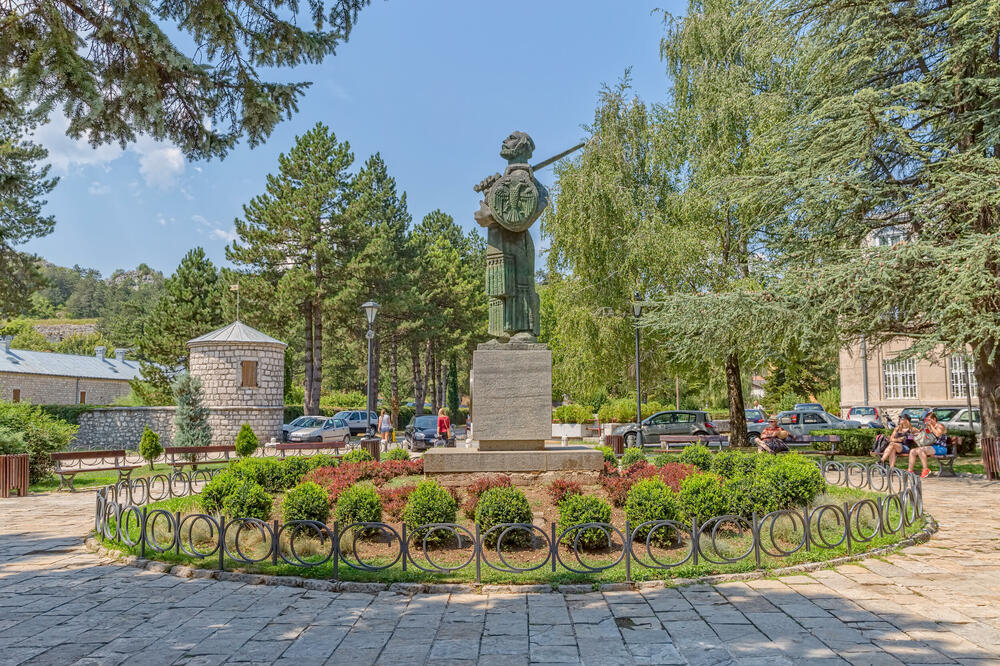It seems that those who are fighting for the throne, nothing can enthrone them...
A throne is basically a chair. But people believe that it is much more than a chair, and that whoever sits in it is possessed of miraculous powers and strength. If you tried to explain the matter to a guest from another galaxy, you would have huge problems. But such are human stories. Effortlessly empty and astonishingly effective.
Yuval Noah Harari in the lucid study "Sapiens", he tries to figure out what made modern man (Homo sapiens). Which is what turned a rather inferior animal, devoid of fur, claws and terrifying teeth, into the absolute ruler of the planet. The answer is - imagination. The power to imagine and believe in his imaginary constructions. (“All countries are imaginary, dear Borges, first of all your Uruguay", Saturday.)
This power to make the imagined "real" and to thereby influence other individuals, decisively shaped and made the man we know.
That is why he is able to believe that a chair is more than a chair, that a king is more important than other people, or that the whole world is somehow ruled by a higher being, which seems, from tradition to tradition, one way or another. Although this narration about the Good Higher Being, which is talkative, people did not mind killing, burning and raping in the name of that being...
When the conflict between two narratives, any two narratives, is moved to the street, it is not the wisdom, nor the foundation, nor the beauty of those narratives, but the bloodthirsty willingness of those who brought the narrative to the street that decides.
Unfortunately, these insights, however well-founded, will not "relax" tomorrow's day in Cetinje. Montenegrins (of all religions and nations) even when they live in a sleazy and fraudulent anti-time (such as ours), dream that they will be seized by a historical opportunity to shout and rush... For what a heroic sacrifice. All our stories about the past are reduced to such moments, to hysteroid ecstasies, to this or that little house and from Odžak who rushed in, with other brothers, and performed a miracle...
As long as we believe that such acts, and not processes of another kind, including economic and cultural self-reflection, direct history, we will be infantile victims of pseudo-heroic ethics, under the auspices of Homer, far from (saving) Hesiod...
A serious and meaningful response to the strong clericalization of society, the impression is, would have to be somewhat different.
The answer to the real problem of a society (excessive clericalization) is not and must not be a matter of belonging to the "other" side, political, church, religious... just as it must not be only city exclusivity. The public "lawyers" of the SPC in Montenegro are already announcing SAO, according to the current "Cetin" model. That is, they announce - the nineties and the same, many times defeated, recipes.
It is additionally slimy that the DPS uses the current situation in Cetinje for the collective washing of the biography. I know that it bothers many citizens of Cetinje who will take to the streets tomorrow, but the masters of manipulation "finish the job".
The current answer, or that part of it, the nature of which is due to the DPS cleverness, in a stylistic and psychological sense, is from a very similar register as the Serbian nationalism of the nineties, because the DPS cannot do otherwise, it is, in an ideological-national sense, a formative experience for them . No matter how authentic the Cetinje protest was, this kind of historical subsequent "loading" does not work for it.
Has Montenegro gained the maturity that calms and/or reduces such situations to the right measure? We'll get an answer tomorrow. Whatever that answer is, it will be a real and true picture of us...
Bonus video:





